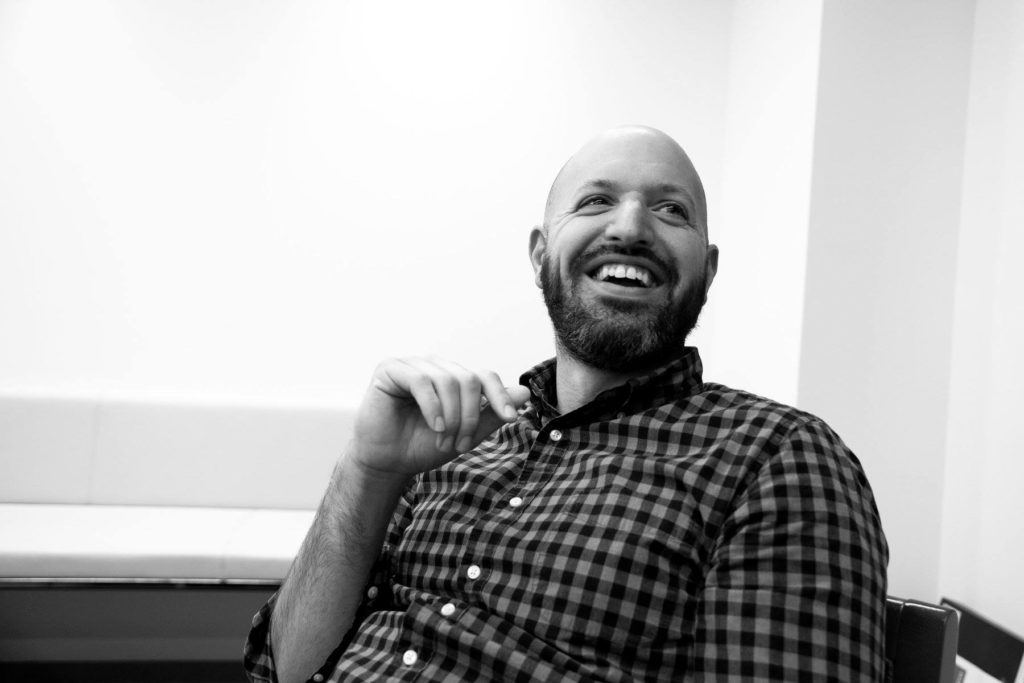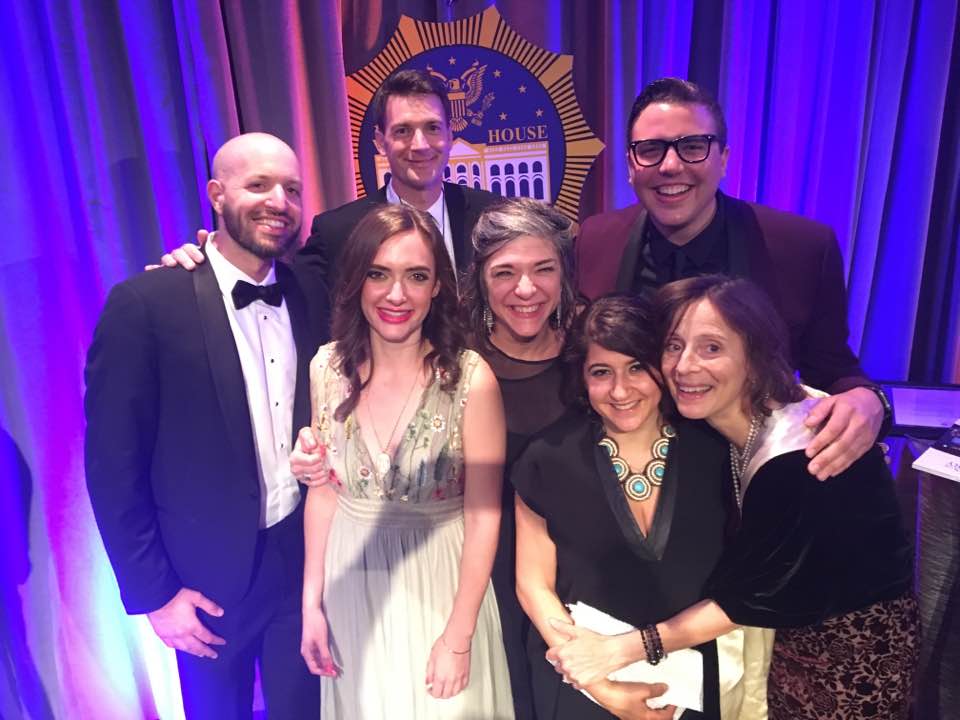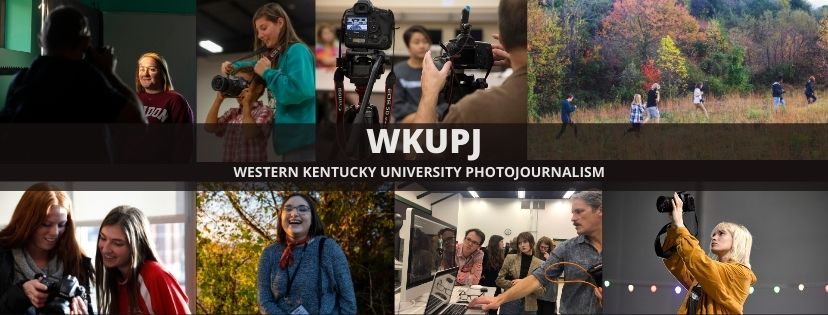A RECURRING SERIES
In an August 26, 2019 email interview, Thomas Simonetti, a 2009 WKUPJ graduate, took a break from his busy schedule as the sport picture editor for The Washington Post and reminisced on his past and how WKUPJ set him up for his career in the photojournalism business.

Photo editor Thomas Simonetti in the headquarters of The Washington Post. (Photo by Marlena Sloss)
Where were you born?
Well, I was born in Long Island, N.Y., where I lived until Age 7. That’s when my family moved to sunny Tampa, Fla.
What High School did you attend?
I went to Brandon High School in a suburb of Tampa. Go Eagles.
How did you end up at WKU?
It was my last semester at The University of South Florida. I was getting a degree in mass communications, was the Sports Editor of the college newspaper, and was working as a freelance reporter for the (then) St. Petersburg Times (now Tampa Bay Times) and MLB.com.
One of my final classes, an elective, was Intro to Photojournalism. I got hooked! With enthusiasm, I took a (terrible) collection of photos to a photojournalist on staff at the St. Pete Times named Daniel Wallace for a critique. His advice: consider more school. He suggested WKU, where he has gone, and the rest is history.
Immediately after graduation I …
I started a six-month internship at the Dubois County (Jasper) Herald. It’s a special place. The small newspaper has a decades-long tradition of running a Saturday weekly feature, ad-free, across the first several pages. The vibe in this small town is midwestern and polite and the people really appreciate the way the paper tells the community’s stories. Getting that internship should be a priority for every photojournalism student.
Later I was hired as a staff photographer at the Midland Daily News in Michigan – a small-but-talented photo staff of three.
Who do you currently work for?
I am a staff photo editor at The Washington Post. My first three years here I embedded with the financial and politics teams, working with a small team of photo editors. Now I am the lone Sports photo editor. Before The Post, I worked at the New York Times on the Metro desk for a short stint.

Thomas Simonetti, left, with the photo crew from The Washington Post at the 2017 White House News Photographers Association annual awards at The Ritz Carlton in Washington D.C. in 2017. WKUPJ 2014 graduate Jabin Botsford, back right, can also be seen here.
What is it like editing and working with other WKUPJ’ers?
There are three dedicated sports photographers at the Post, and two of them are WKU grads: Toni Sandys and Jonathan Newton. I’ve worked with WKU alumni in almost every job and internship I’ve done. When I worked on the politics desk, I interfaced daily with photographer Jabin Botsford. There are multiple WKU grads at the New York Times. Former Midland Daily News photo editor Nathan Morgan (2.0) hired me on the staff there. I worked with WKU grad Krista Schinagl while interning at the Jasper Herald. We are everywhere.
Since graduation, tell us about some of the more interesting places you may have visited as part of your work being a visual story teller?
For me, the most interesting places were always behind the scenes of regular people’s lives. For instance, while at Western, I spent countless hours documenting the lives of a single mother of three named Dawn and her young family. I was with them in the evenings when they ate dinner and mornings getting ready for school. Literally, hours and hours of time was spent with them. Recently the mother reached out to me on Facebook. She told me that she was glad I was doing well and wanted to inform me that she was now married and happy and that all the kids were growing up.
Doing what we do, you become a part of people’s lives, and it’s really special.
In hindsight, is there anything you learned while in a PJ class at Western that has resonated with you now?
Another story I worked on at WKU, a man had both his legs amputated and wasn’t sure how long he had left to live. The assignment was to do a semester-long story on someone who was imminently facing death. Heavy stuff. A year or so later, he passed away and his family reached out to me for photos they could display of him at his funeral. It was the least I could do.
The work we do is important in ways we don’t realize when we are thinking about exposure, cleaning up backgrounds and looking for light. That’s something I never forget.
What has changed in your professional plans from the time you enrolled at WKU until know? Did you ever expect to be where you are today?
You learn pretty quickly there is no “normal path” in photojournalism, at least anymore.
On the first day of my first class at WKU, we were asked to write down a goal on an index card. The class was taught by James Kenney. I wrote “Work for The St. Petersburg Times.” Though I would have loved to be on staff at my home town paper, I’d say I landed at a pretty nice spot.
It would be way too long of a story to explain the winding path often filled with self-doubt that led me to the New York Times and now The Washington Post. The bottom line is you have to strive to be your true self in job interviews and with relationships you cultivate in your career.
Oh, and you also have to be extremely lucky.
Do you have any immediate future work plans that you can disclose? What awaits you in 2019?
Next up for me, a season of NFL live-editing at Washington Redskins games this fall. And perhaps Washington Nationals baseball playoffs (if they can continue on pace the rest of this season).
If you could have any “dream” freelance assignment what would that be?
More than anything, I look forward to a lifetime of documenting my son Gabriel’s life. He’s 17 months old and keeps me on my toes.
What is your favorite memory from WKUPJ?
Every morning, when possible, I’d wake up and meet my best friend Daniel Johnson at the Starbucks on Campbell Ln. We alternated who bought the New York Times. We’d sit there and drink coffee and read it cover to cover.
What advice might you give for anyone considering to pursue a career in the journalism industry?
Something that’s been on my mind lately, and something I tell emerging photojournalists, is that if you want to work in news it’s important to not post online anything that could be perceived as a bias. The New York Times recently published a story detailing efforts to comb the social media accounts of working journalists in a campaign to discredit the media.
Oh, and when you get a job, put money into available retirement accounts early. I am a dad now, so I’m obligated to say that.
